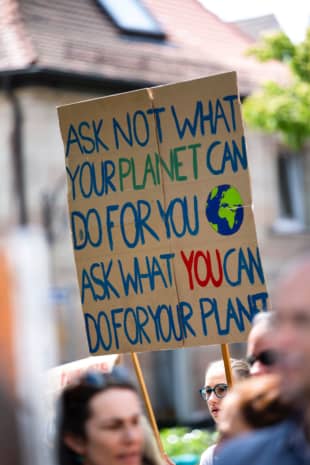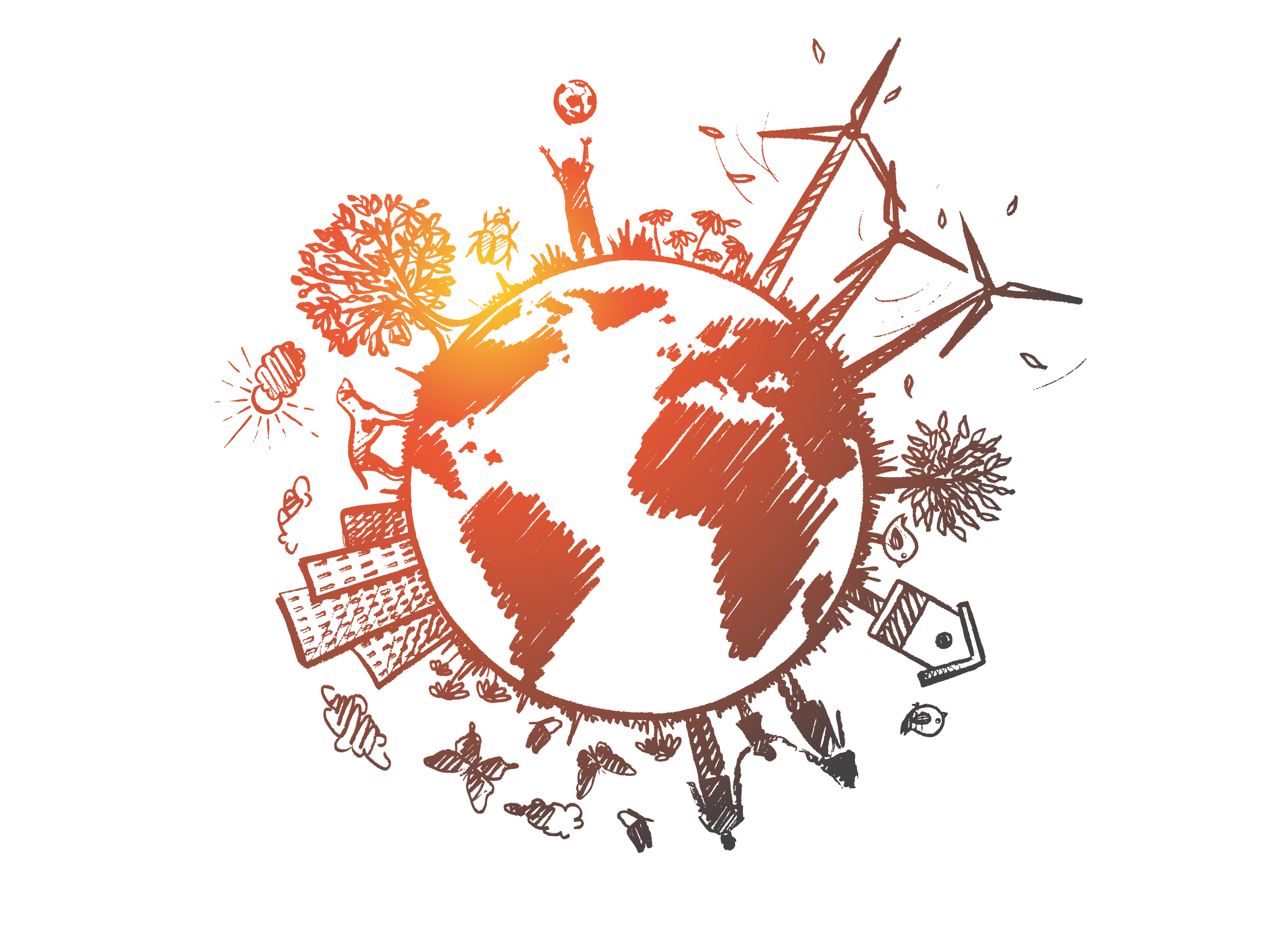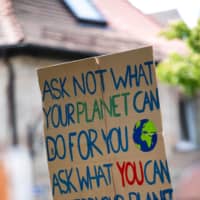Sept. 23 will see the Climate Action Summit held at U.N. headquarters in New York, preceded by the Youth Climate Summit on Sept. 21.
In his address at the recent Abu Dhabi Climate Meeting, U.N. Secretary-General Antonio Guterres went as far as to call climate action “a battle for our lives.” However, he added “it is a battle that we can win.”
Yet, on an individual level, conversations about climate change can be quite overwhelming, and often the more we read and learn, the more we feel depressed or helpless, incapable of action.
From unimaginable heat waves, to rampant flooding and extreme weather patterns all around the world, the evidence of climate change can no longer be denied. Climate change is real; we have caused it, and so we can help limit its impact, provided we work together and act quickly.
The adverse effects of global warming are not only impacting the environment, but also people’s daily lives.
Kim Tran from Vietnam, now a volunteer with the 350.org Tokyo branch and a member of Climate Action Japan, comments: “In 2018, thousands of fish in Hanoi’s West Lake died from a lack of oxygen caused by abnormally hot weather. The smell of dead fish was horrible from my schoolyard just 10 meters away. But only when it happened right in front of our eyes, did we realize how close the dangers of climate change are to us.”
So, what can one person do? Does individual action have any impact or meaning at all? The answer is yes. Yes, it does.
Of course, it is essential that governments and corporations play a crucial role in moving away from fossil fuels and cutting carbon emissions, and their decisions will have the most visible and large-scale impact. But we as individuals (young and old), can also play an important supporting role in mitigating this crisis. Both individual change and macro-level shifts are needed at the same time.
Planting more trees is one powerful action we can take, but we can also make small, yet impactful changes in our everyday habits.
Here are a few tips and simple ideas from various sources:
- Be part of the solution through talking and consulting with your local political representatives. See what your city is doing through the Global Covenant of Mayors for Climate and Energy or make a mark with this Climate Resilience toolkit.
- Educate yourself and others. The amount of information can be overwhelming, but knowing the facts is important. Share what you learn with friends and family. Learn more here: SDGs on Climate Action, U.N. Environment, Good Life Goals, IPCC Report, National Geographic and the Club of Rome Climate Emergency Plan.
- Unplug electric devices when not in use.
- Say no to plastic by using eco-bags when shopping.
- Make conscious efforts in daily life. Try walking to work, cycling, using public transportation or carpooling with friends. Anatomy of Actions provides a handy action set for everyday sustainable living. There are many websites offering carbon footprint calculators.
- Shop with the environment in mind. One possibility is to avoid fast fashion and spending on unnecessary items — recycle, reuse and reduce.
- Exercise consumer rights. Research what social and environmental considerations companies take into account when manufacturing their products.
- Get the whole family involved through fun activities or visit sites such as National Geographic Kids where kids can learn more.
- Fly less, when possible. Airplanes use fossil fuels that are a major contributor to greenhouse emissions.
- Eat less meat. Find out how the meat industry contributes to climate change and why eating less meat can help save our planet.
- Use renewable energy if possible, perhaps through installing solar panels at home.
- Invest in eco-friendly companies. The RE100 lists some of the world’s most influential companies that are committed to achieving 100 percent renewable energy use by 2050 or earlier.

It may be difficult to make an immediate and dramatic lifestyle overhaul. “Fortunately, there are some super easy things we can adopt into our routines that, if we all do (them), will make a big difference,” as stated in the U.N.’s Lazy Person’s Guide to Saving the World. Taking small, manageable steps will lead to an overall change in our daily energy and resource usage. The latest U.N. climate action site ActNow also highlights 10 key actions that individuals can take and record.
Mari Nishimura from the U.N. Environment Programme says: “The choices we make every day — from choosing our food and how to get to school or work, what clothes we buy or whether or not we choose to recycle our old phones — have a profound impact on the planet. We are the last generation who can take action to achieve the U.N.’s Sustainable Development Goals over the next 12 years.”
We may think: “I’m only one person. I can’t change the world’s carbon footprint,” but our combined impact will be immense.
Soka Gakkai International (SGI), a signatory of the Interfaith Climate Change Statement, is a community-based Buddhist movement that promotes peace, culture and education centered on respect for the dignity of life. SGI members uphold the humanistic philosophy of Buddhism in 192 countries and territories around the world. Currently, the Earth Charter Initiative and SGI are collaborating to promote awareness of the U.N. Sustainable Development Goals and individual action to achieve them through educational tools such as the Mapting app.





